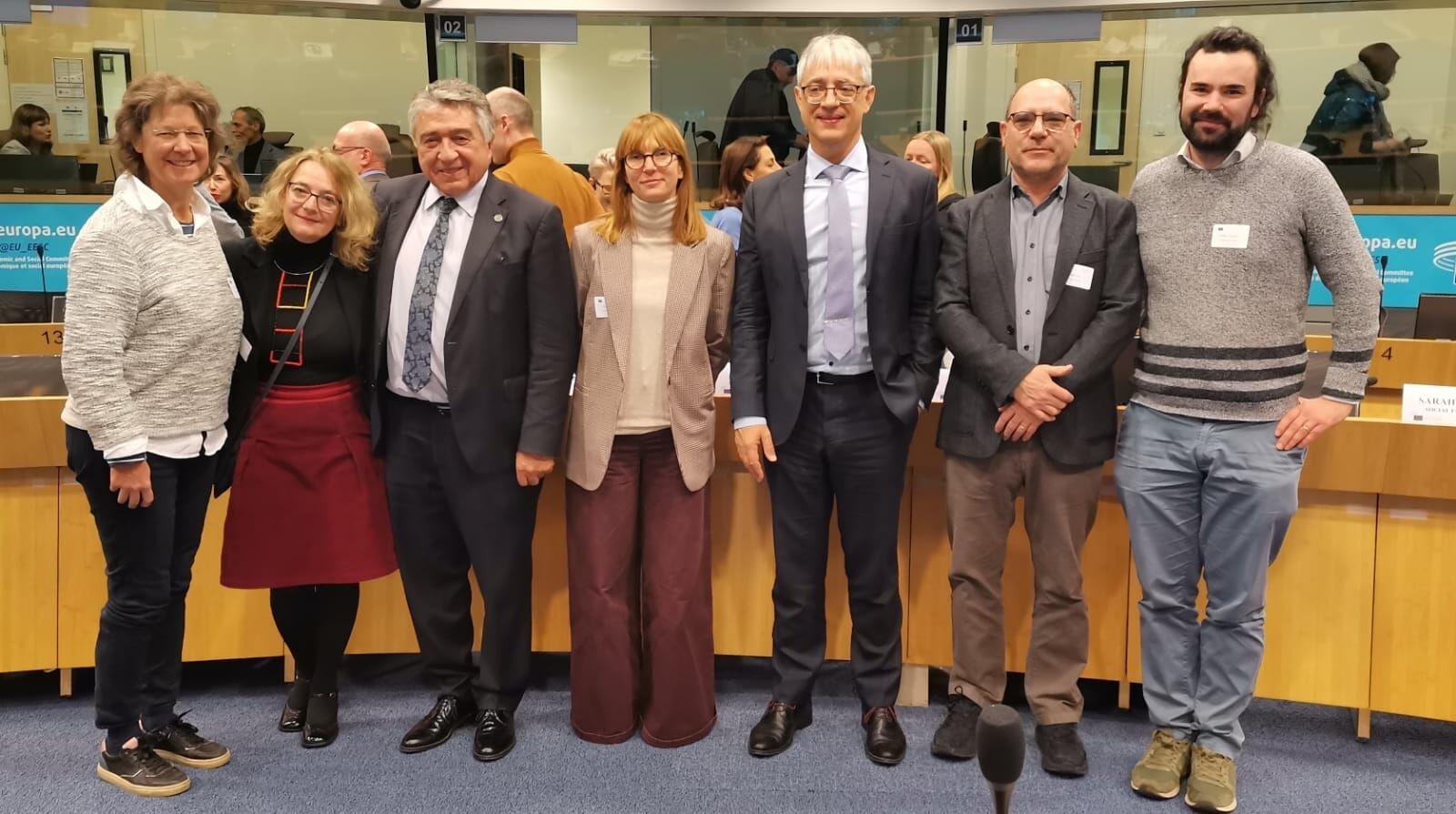Statistical report on the social economy in the EU
On 7th February in Brussels, the European Economic and Social Committee (EESC) hosted the presentation of the Statistical Report on the Social Economy in the EU, produced by EURICSE and CIRIEC , with the support of the European Commission in the framework of the Action Plan for the Social Economy.
The study, entitled “Benchmarking the socio-economic performance of the EU Social Economy“, was carried out by EURICSE and CIRIEC following a public call for proposals launched by the European Council Executive Agency for Innovation and SMEs (EISMEA).
The event started with greetings from Giuseppe Guerini, President of CECOP-CICOPA Europe, and Justyna Kalina Ochędzan, President of the Working Community of Social Organisations WRZOS. The European Commission was represented by Bonifacio Porras García, Head of the Proximity Economy, Social and Creative Industries Unit (DG GROW).
The main findings of the report were presented by our Euricse researchers Chiara Carini and Giulia Galera with Rafael Chaves Ávila from CIRIEC-Spain. The report estimates that 11.5 million people are employed in the EU social economy, distributed among 4.3 million enterprises and entities, of which 97.7% belong to the four traditional families of the social economy: cooperatives, mutual societies, associations and foundations. Only 246,000 of these entities are classified as social enterprises.
The report highlights the need to improve the definition and delimitation of the social economy and social enterprises, addressing the ambiguity about which entities can be included in the sector. It also highlights the significant disparities between countries in the development of social economy statistics, which limit their comparability at the European level.
Key proposals of the report include the creation of a joint international working group, consisting of national statistical institutes, academic experts and sector umbrella organisations, to develop a harmonised statistical framework. Other recommendations include the updating of the European System of National and Regional Accounts (ESA 2010) to include as yet unrecognised social economy entities and the realisation of a special Eurobarometer on the social economy, aimed at collecting information on the participation of citizens and the perception of the contribution of this sector to society.
After the presentation, a debate took place with the participation of members of the European Parliament and representatives of important organisations of the sector, who emphasised the importance of continuing to develop statistics on the social economy in order to foster its growth and recognition for the benefit of society as a whole.
